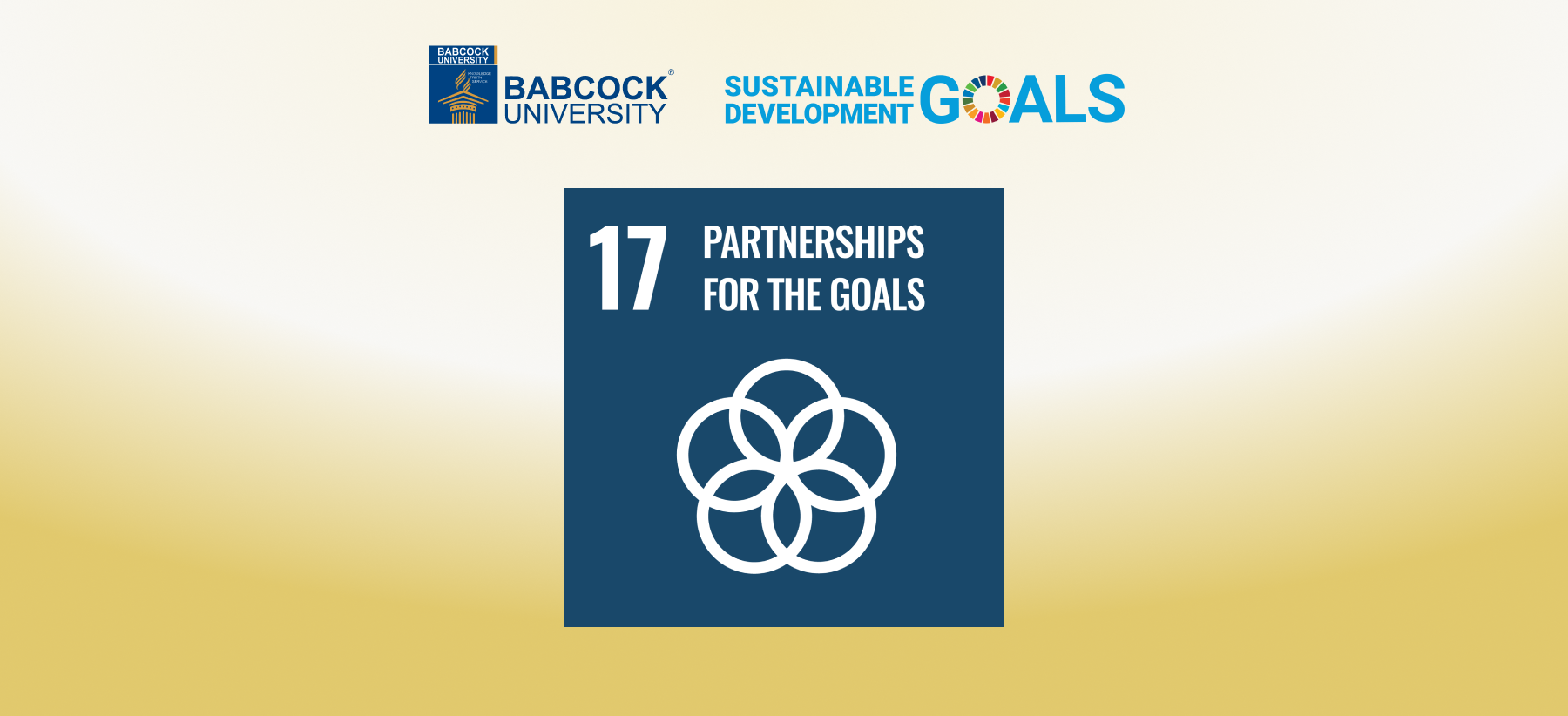| Admin

Babcock University’s Commitment to Partnerships for the Goals (SDG 17): Strengthening Global Partnerships and Collaborative Initiatives for Sustainable Development
Babcock University fosters partnerships that support sustainable development by engaging in collaborative research, international alliances, and academic networks. These partnerships are essential for knowledge sharing, promoting resilience, and addressing global challenges in line with Sustainable Development Goal 17.
Examining Third-Party Funding in Commercial Arbitration
Collaborations in legal and financial systems are essential for equitable access to justice, particularly in commercial arbitration. The study, An Evaluation of Third-Party Funding in Commercial Arbitration, examines the growing role of third-party financing in dispute resolution, highlighting the impact of financial partnerships on access to justice and fairness in commercial settings. Babcock University’s exploration into third-party funding aligns with its commitment to strengthening financial partnerships that enhance access to equitable justice.
Addressing Mental Health Through International Research Collaboration
Research on public health issues, such as mental health, benefits from international cooperation and shared methodologies. The study, Association of Depression and Anxiety with Uncontrolled Hypertension, reflects a cross-national collaboration to understand the links between mental health and hypertension. Such partnerships enable Babcock University to contribute valuable insights into global public health, addressing mental health as a critical element of sustainable development.
Understanding Societal Impacts of Problem Gambling
Societal challenges such as problem gambling require multi-stakeholder engagement for effective intervention. In the study, Family Demographics, Somatic Symptoms, and Problem Gambling Among Students in a Nigerian Institution, Babcock University researchers collaborate to explore the psychosocial and familial dimensions of gambling addiction. These partnerships expand knowledge on managing public health issues and strengthen social resilience.
Analyzing Global Economic Stability Through Public Sentiments on Conflict
Babcock University’s research contributions extend to analyzing the global economic effects of geopolitical events, such as the Russia-Ukraine conflict. The study, Russia-Ukraine War and Price Volatility of Global Commodities: The Role of Public Sentiments, utilizes sentiment analysis to examine the impact of public perception on market volatility, underscoring the importance of economic stability for sustainable development. This research exemplifies how international cooperation enhances our understanding of economic resilience.
Mapping Emission Patterns to Develop Environmental Policies
Environmental sustainability is a key area where Babcock University’s partnerships make a difference. The study, Spatial Distribution and Policy Implications of Exhaust Emissions from Two-Stroke Motorcycles in Southwestern Nigeria, explores the environmental impact of motorcycle emissions and proposes policy interventions. This collaboration supports sustainable urban development and environmental protection through data-driven policies, contributing to SDG 17’s goals for sustainable environmental practices.
Conclusion
Babcock University’s commitment to SDG 17 is evident through its partnerships in legal reform, public health, economic resilience, and environmental protection. By collaborating with international institutions and local stakeholders, the university promotes knowledge-sharing and resilience, reinforcing global and local partnerships for sustainable development.